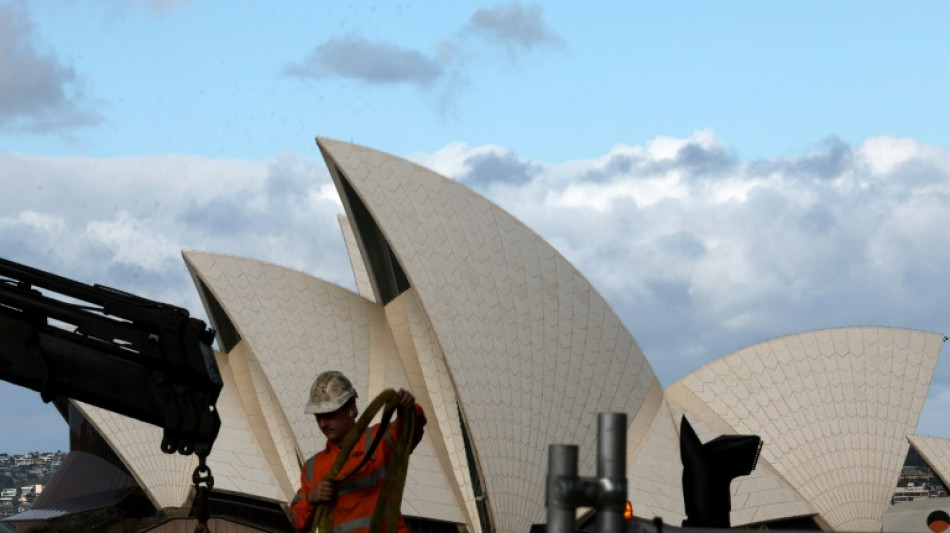
NGG
0.6300

Prime Minister Anthony Albanese promised on Wednesday to defend Australia's interests in its trade tangle with the United States, in a televised debate ahead of May 3 national elections.
US President Donald Trump's 10 percent tariffs on close ally Australia have loomed large in the duel between 62-year-old Albanese and his hard-nosed conservative challenger, former policeman Peter Dutton.
Asked if he trusted the US president, Albanese said he had "no reason not to" despite Trump having promised to give "great consideration" to Canberra's free trade arguments before deciding to impose the tariffs anyway.
"We made it very clear that it was an act of self-harm," the centre-left Labor Party leader said.
But Albanese said his government "won't budge" from Australian policies to ensure access to cheap medicines, enforce health rules on beef imports, and make big social media platforms pay for using local Australian news.
"We will stand up for Australia's national interest, because that is important," he said.
Albanese's Labor Party has crept into a narrow lead in recent opinion polls, with some pundits citing public support for his criticism of the US tariffs that he has denounced as "not the act of a friend".
Dutton -- running with the slogan "Let's get Australia back on track" -- has abandoned a poorly received promise to ban working from home for public sector staff, and softened a plan to axe tens of thousands of public sector jobs.
Asked if he trusted Trump, Dutton replied: "Well, we trust the United States. And I don't know the president. I have not met him."
But the 54-year-old opposition leader said his Liberal-National Party conservative coalition had contacts in the White House that would enable it to open negotiations on the tariffs.
"We should be doing everything we can to enhance the relationship, to make our two countries stronger together," he said.
"We have stood with America in every battle. It's an incredible relationship."
- Nuclear reactors -
On defence, Albanese denied having any contingency plans in case the Trump administration pulls out of a US-British-Australian agreement to equip Australia's navy with stealthy, nuclear-powered submarines.
The so-called AUKUS agreement "is in the interest of the US", he said.
Both sides have promised measures to tame the cost of living, which top voters' concerns in the polls.
However, their biggest divide is on how to tackle climate change.
Albanese's government has embraced the global push towards decarbonisation, warning of a future in which iron ore and polluting coal exports no longer prop up the economy.
His election catchcry is "building Australia's future" -- an agenda that includes big subsidies for renewable energy and green manufacturing in the sun-soaked country.
Dutton's signature policy is a US$200 billion scheme to construct seven industrial-scale nuclear reactors while slowing the rollout of solar and wind-generated energy.
Dutton said in Wednesday's debate on public broadcaster ABC that he would use the federal government's powers to build nuclear power plants "if need be", even in the face of local and state opposition.
Though conceding climate change was having an impact, Dutton said he could not tell whether it was causing specific floods or disasters that were part of the history of Australia.
"I will let scientists and others pass that judgement."
Albanese replied that the science was clear, even if climate change could not be traced to every weather event.
"The science told us that the events would be more extreme and they would be more frequent, and that is what we are seeing playing out," he said.
Voting in Australian elections has been compulsory since 1924.
Registered voters who do not cast their ballot are slapped with an "administrative penalty" of around Aus$20 (US$12). Turnout consistently tops 90 percent.
O.Holub--TPP